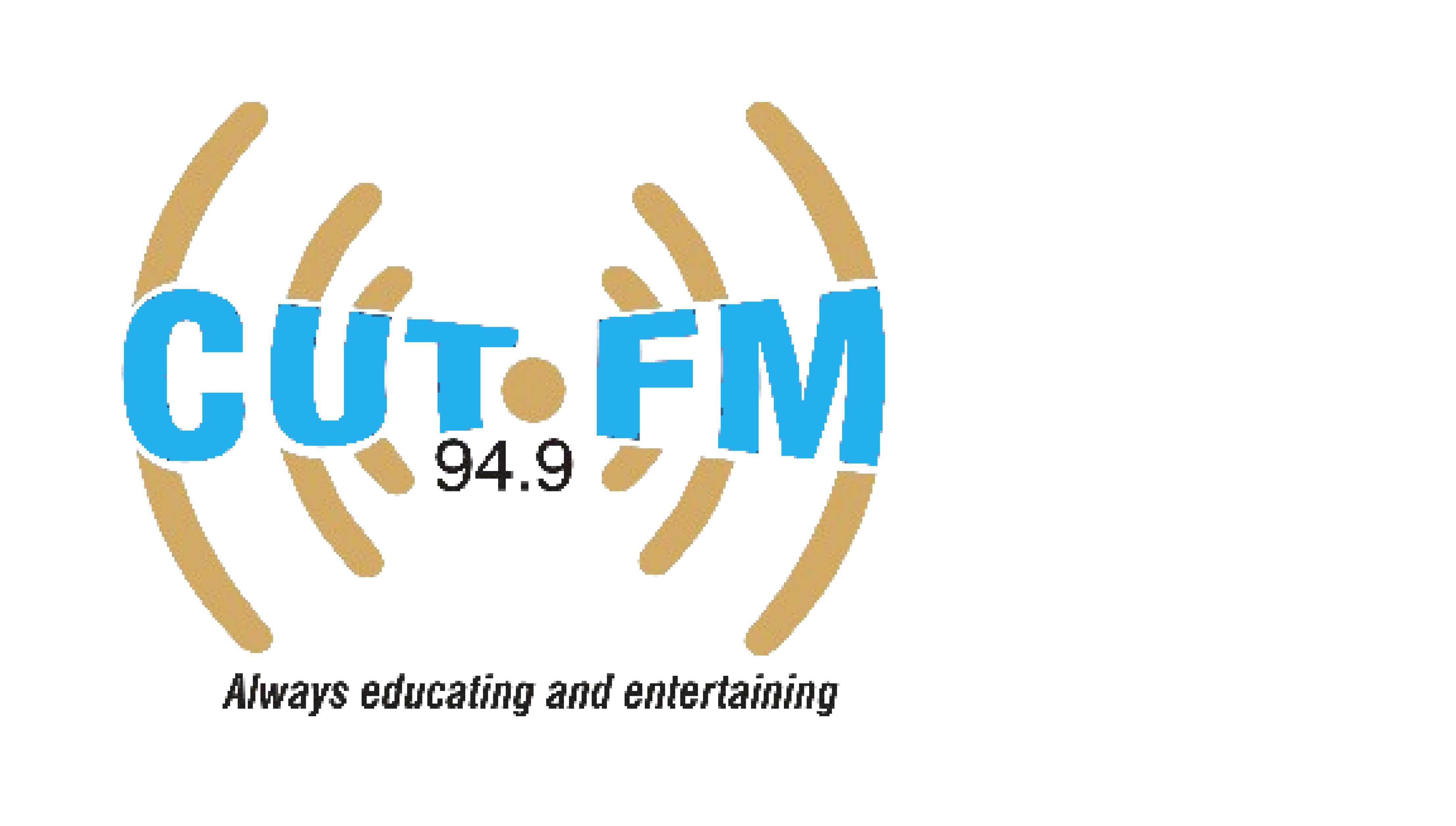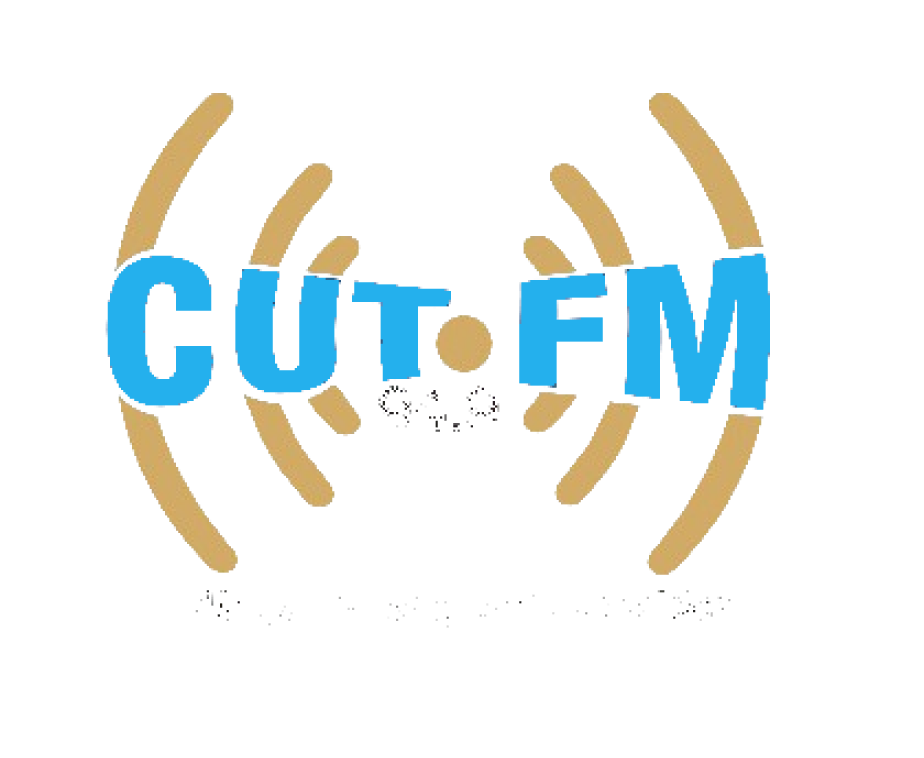- Preamble
1.1 This policy is guided by international best practices on broadcasting and the media legal framework in Zimbabwe.
1.2 The Chinhoyi University of Technology Campus Radio is a student-run, campus-community station, catering not only to the students and staff but also the broader community of Chinhoyi.
It airs a mix of student-produced programmes, music and other campus events. Programming also addresses Zimbabwe’s developmental challenges and sustainability, thereby sharing the university’s expertise to solve existential problems and proffer solutions from innovations through research. The Station therefore shall pride itself in being a voice for the student by the student and strives to engage in topical issues that affect the student as well as the surrounding wider community.
The station is committed not only to providing a quality broadcasting service but also to the education of media professionals. Thus, the station also seeks to provide an opportunity for students to get practical exposure and training in broadcasting and multi-media technologies while at the same time articulating the vision of Chinhoyi University of Technology – to be the world-class centre of excellence for technological innovation and entrepreneurship. CUT-FM will strive to provide programming content that is relevant, exciting, innovative, of exceptional quality, informative and educational whilst being entertaining, accurate and fresh. It is the aim of this station to encourage students to create their own shows and unique programmes, resulting in a robust selection of weekly music, talk, sports and other programmes for their professional development.
- Editorial Values
To meet these goals and objectives, the station is guided and will operate under the following values and policy framework:
2.1 Independence
This is central to centre’s integrity and credibility. Programme makers will not be influenced by pressure from political, commercial or other sectional interests or by their own personal views or activities. There must be no external interference in the presentation or content of programmes or any improper influence brought to bear internally.
2.2 Autonomy with responsibility
Notwithstanding the requirements of clause 2.1, the independence of producers and presenters at the Campus Radio come with responsibility and observance of the other values such as accuracy, balance and ethical considerations. The Director of the Campus Radio or his/her delegated official oversees the day-to-day responsibility for editorial decisions and is accountable to the Board for editorial performance. The centre operates under the policy of upward referral, the final decision on all major editorial issues where doubt exists – or which might adversely affect the public standing or credibility of the Campus Radio rests with the Director who will be responsible to the Board for ensuring that editorial policies are upheld.
2.3 Truth and Accuracy
CUT-FM will produce content that is true and accurate, be it news or material that will fit into the various programme formats that will be employed by the students, its volunteers and interns. Programmes will be fact-based and thoroughly researched. The centre will strive to report all issues in a legal, objective, accurate and ethical manner, according to the Canons of Professional Journalism. These include ethics concerning accuracy, responsibility, integrity, conflict of interest, impartiality, fair play, freedom of the press, independence, sensationalism, personal privacy, obstruction of justice and creditability.
2.4 Harm and Offence
CUT-FM aims to broadcast news as it is, including all aspects of the human experience and the realities of the world. In doing so, the centre will shoulder the responsibility to protect the vulnerable from harm. Content will be sensitive, ethical and meet and guided by the Zimbabwean media legal framework as well as our audiences’ expectations.
2.5 Fairness
Content will be based on fairness, openness and honesty. Audiences will all be treated with respect. The Station will strive to uphold the principles of fair representation, balanced reporting and will therefore create an enabling environment that guarantees participation by both internal and external audiences and parties.
2.6 Privacy
Private behaviour, information, correspondence and conversation will not be brought into the public domain unless there is a public interest that outweighs the expectation of privacy.
2.7 Transparency
The centre will be transparent about the nature and origins of the content on offer. Records of all the stories covered as well as the sources will be kept on file for reference when the need arises.
2.8 Accountability
The Radio Station will be accountable to its audiences and will deal fairly and openly with them. The centre will be open in acknowledging mistakes when they are made and encourage a culture of willingness to learn from them.
2.9 Diversity and Balance
CUT-FM will operate in a diverse community – a community that is made up of the student body, academic staff and representations from various racial, ethnic, cultural, gender and religious orientations. The centre commits to broadcasting news and programmes that will be relevant to the different members of its community – both in and around Chinhoyi and beyond the province through partnerships with other broadcasters and on-line streaming.
3.0 Editorial Policies
3.1 Good taste and decency on all programmes in general
CUT-FM will strive to maintain standards which are consistent with the observance of good taste and decency. Programmes should respect and reflect both the Station’s values and generally accepted values in society regarding such matters as vulgarity, profanity or sexual behaviour. Programmes should contribute towards intellectual, scientific, cultural, spiritual and ethical development; promote informed debate and stimulate critical thought and recognise cultural diversity of Zimbabwe.
3.2 News
The centre will strive to present comprehensive, independent, impartial and balanced news. News bulletins and current affairs programmes will feature university events first before coverage of events taking place in Chinhoyi, the province before going beyond to look at national and international matters.
3.3 Stories about Chinhoyi University of Technology
All news stories about the university should be referred to the Director of Information and Public Relations before broadcasting/publication. No material that disrupts the university’s activities will be broadcast on this station.
3.4 Languages and language use
Programmes may be produced in any of all the sixteen (16) recognised national languages as per the constitution of Zimbabwe. Offensive or profane language should never be used gratuitously. However, where it becomes necessary to use such language, for instance on issues of sex and sexuality in programming, such programmes or content must be scheduled outside hours where families will be listening and at late hours. Even during these late “adult hours”such language should be used within context and respect the public interest. However, before such broadcast, approval should be obtained from the Director and a warning should be given to the audiences.
3.5 Violence
Media messages in some instances portray violence and sometimes may influence how society acts. Therefore, CUT-FM shall not broadcast any material which, judged within context, contains messages which might incite or glorify violence in any form. Thus material that portrays dangerous behaviour that could be easily imitated by the audience must be avoided.
3.6 Hate speech and prejudice
Content that can cause disaffection based on race, national or ethnic origin, colour, religion, gender, sexual orientation, age, mental or physical disability will be avoided given the possible dangers of some people behaving according to what they hear, see and read about.
3.7 Music
Every effort will be made to promote local music from Mashonaland West province, local Zimbabwean Arts, followed by regional and international music. Explicit music will also form part of the play list but songs which feature strong language or explicit content dealing with drugs, violence and sex will be avoided. Where used, context should be provided to justify use of such music. At late hours in specialist music programmes listeners can be assumed to be capable of making informed choices about programmes supported by adequate warning of impending content. The songs that are going to make the playlist must add value to the on-air product and directly support programming strategies. Thus the playlist should be vibrant, energetic, youthful, fun, exciting, interesting, different and contemporary. CUT-FM will also playlist older music to allow audiences to relive experiences and kindle memories.
3.8 Sex and Sexuality
Topics in this category will be covered from time to time through discussions, reportage and other programme formats. Such references shall be handled with integrity, sensitivity and without sensationalism. Relevant Zimbabwean laws will guide on the content to be produced.
3.9 Religious Sensibilities
CUT-FM will broadcast programmes on and about religion. Producers and presenters should however not promote any particular belief system or form of religious expression.
3.10 Portrayal of Race and Cultures
In portraying social groups, stereotypes should be avoided. Overall, issues of race and culture must be handled with care and responsibility. The Radio Station will therefore strive to encourage a greater understanding of human differences and cultural pluralism. To this end, the Station will feature programmes in the national languages in order to provide a discursive platform to all citizens in national discourse and dialogue.
3.11 Disability
Content labelling people with impairment or using negative language to describe disability should be avoided.
3.12 Tragic events, disasters and death
Reporting scenes at funerals and death in news and programmes, is a sensitive issue requiring careful handling. While death itself is a matter of public record, the grieving of relatives and friends is a matter of privacy which should be respected. Children in particular should be treated with great sensitivity.
3.13 Major Disasters and events of National crisis coverage
When such events occur, they should be incorporated into live programming proportionate to the significance of the event. Where appropriate this should be with the approval of the Executive Producer, the Station Manager or the Director of CUT-FM according to the referral protocols of the Station. In such cases, normal programming may be suspended and replaced by special news programming or rolling news coverage.
3.14 Depiction of people experiencing poverty
This should be done in a manner which is not exploitative, dehumanising or insulting. Care should be taken to craft messages so that such vulnerable groups do not feel victimised, live a life that is criminal or an exception. The approach is to practice journalism for and with people rather than about those who are experiencing poverty and associating them with certain habits, lifestyles and choices. As content is generated, producers must revisit the programming values namely equality, balance, editorial independence, diversity, development, community building, integrity, truth and transparency.
3.15 Discrimination and stereotypes
It is critical that the centre does not broadcast programmes that promote discrimination or stereotyping on the grounds of race, gender, age, disability, sexual orientation, national or ethnic origin, colour, or religion. Producers must ensure that they avoid language and content that reinforces stereotypes or offends individuals or communities.
3.16 Editorial oversight on sponsored content
The Director ensures editorial control of all sponsored programming. In the case whereby a sponsor wants to control the content of the programme, the sponsor must develop, produce and pitch the content to the Executive Producer for review and approval by the Director so that such content complies with the editorial policy.

